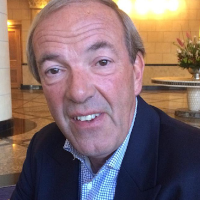Hilton has had a presence in Africa for over 50 years, but the majority of that growing African footprint has taken the form of properties under the flagship Hilton brand, and one of the more interesting developments in recent years has seen the group introduce ‘new’ brands to the continent.
As a result, we’ve seen the introduction of the luxury Conrad Hotels & Resorts brand and the full-service Curio Collection by Hilton and DoubleTree by Hilton brands, along with the ‘focused service’ Hilton Garden Inn brand.
It’s the latter that I would argue has been the most significant, as it’s a departure from the ‘five-star first’ approach and the meeting of a perceived need in Africa for ‘mid-market’ hotels, due to the continent’s growing middle class and contraction of some of Africa’s biggest economies.
That approach has seen Hilton roll out Hilton Garden Inn properties in Lusaka (Zambia), Gaborone (Botswana) and Mbabane (eSwatini), with further HGI properties due to open in Windhoek (Namibia) and Umhlanga (South Africa) over the course of the next 18 months.
“You can’t put a Hilton everywhere, because in cities where there is limited demand it just doesn’t work, and we now have a range of brands that are suited for different locations in secondary cities, or secondary locations in bigger cities,” says Van der Putten. “There are a couple more brands that are suited for African locations, which, step-by-step, we’ll launch, but we want to focus, for the time being, on Hilton Garden Inn, because of the strength of that product.”
However, that won’t mean Hilton will pass up opportunities for some of its premium brands, as shown by the recent announcement of a Canopy by Hilton project being developed in Cape Town’s Longkloof Studios and scheduled to open in 2021.
“Canopy is a lifestyle brand and it’s innovative, and the area around Longkloof Studios is very ‘lifestyle-ish’, with a lot of life, young entrepreneurs and new small companies,” says Van der Putten. “It’s the perfect fit for the Canopy brand.”
It’s obvious that Van der Putten is bullish about the future of the African continent, but hotels need vibrant and growing economies to thrive, and one would hardly use those adjectives to currently describe some of Africa’s bigger economies. Hilton, though, is taking a long-term view and, much like some of its big competitors, the prevailing thinking is that these things work in cycles.
Hilton has already shown that it is prepared to put its money where its mouth is and has been showing its commitment to the continent with the likes of its Hilton Africa Growth Initiative and Hilton Big Five projects.
“We’ve expressed our confidence in what’s happening in Africa, but we are taking it step-by-step,” says Van der Putten. “We’re not rushing into developing hotels, but we do see growth.”
But can you say of the same of South Africa?
“When the economy starts turning, you’ll see domestic business travel coming back and if the South African companies are starting to get more confidence in what happens, then I think you’ll see an upswing,” he says.
Van der Putten’s positivity extends to South Africa’s share of the international corporate market.
“International companies don’t want to travel around elections, because the media are not necessarily positive about what happens around election time, so I think April and May, and maybe up to and including the end of May, was negatively influenced by the lack of activity in corporate meetings and reduced corporate travel,” says Van der Putten. “But, June was positive and the rest of the year looks to be less affected.”
Looking further down the track, does Van der Putten remain positive that South Africa can turn itself around?
“Absolutely,” he says. “Maybe not in the short-term, but we need to exude confidence and remember that there is so much interest in what happens in Africa, and that South Africa/Jo’burg is the economic centre of Africa, and that won’t change anytime soon.”

